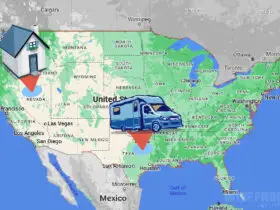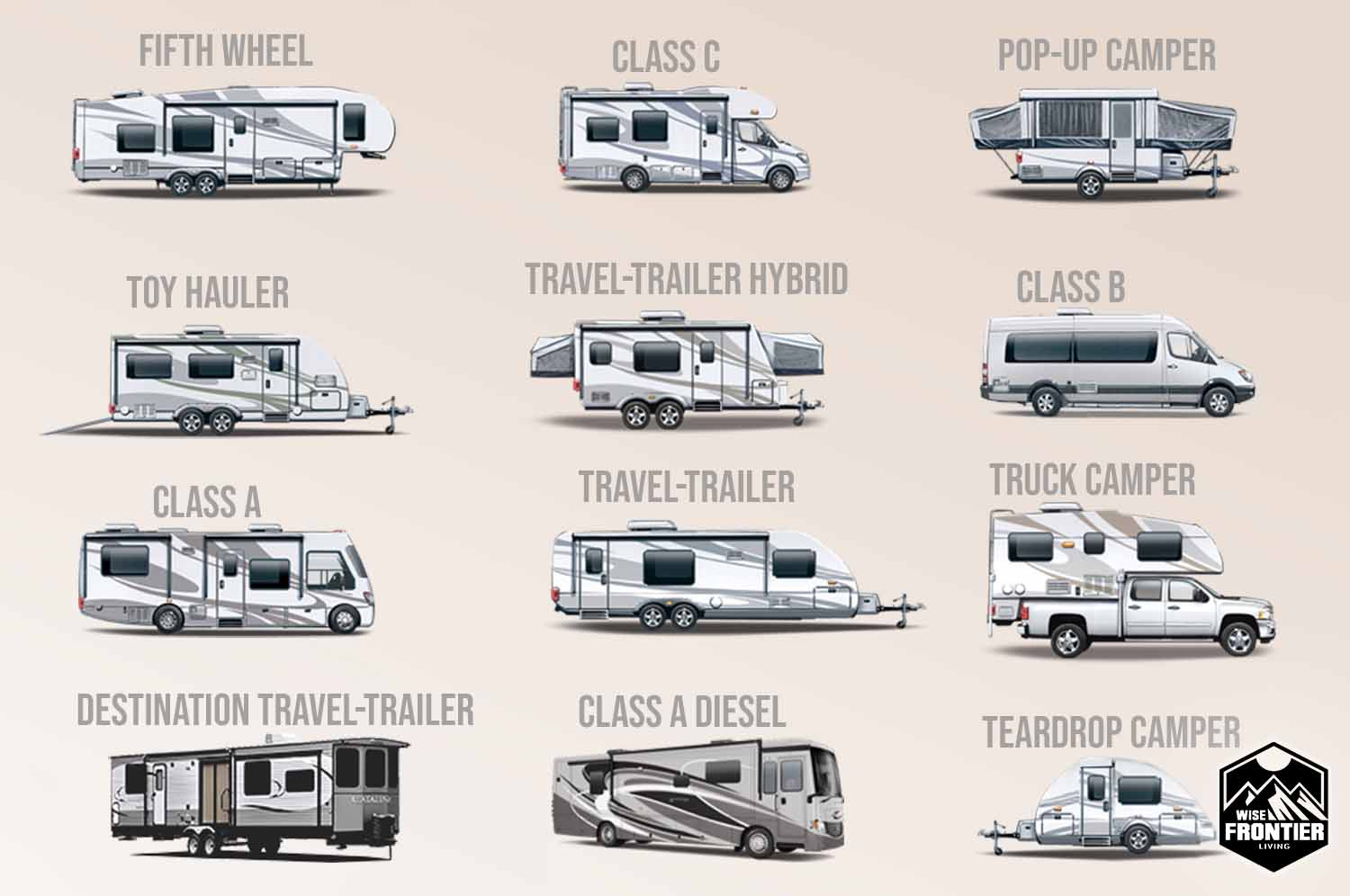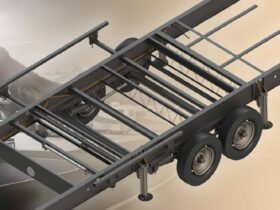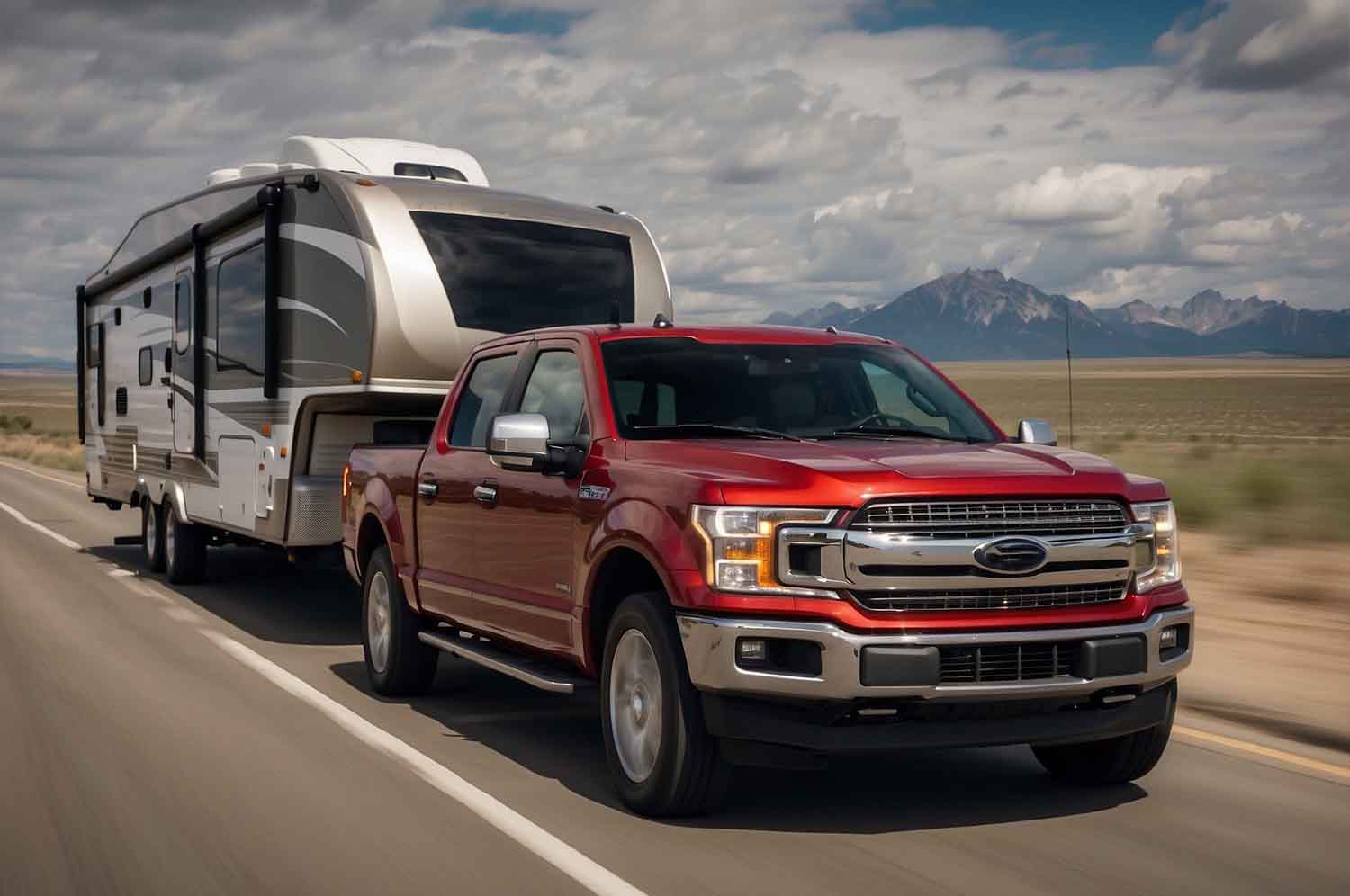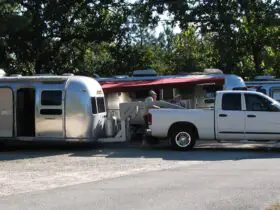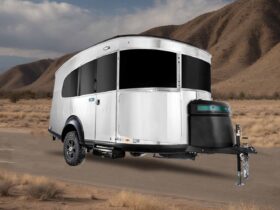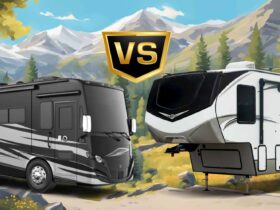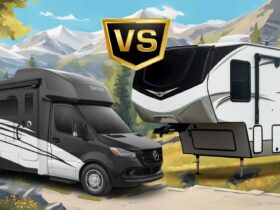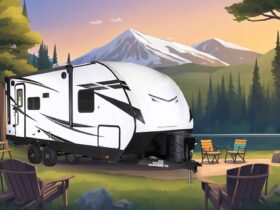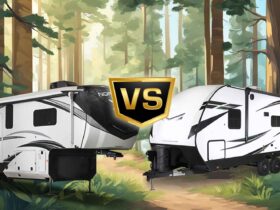RV classification can be intricate, involving various categories that are distinguished by size, amenities, and the need for a separate vehicle for towing.
Camper trailers are a subset of towable RVs and are typically more affordable and easier to maintain than their motorized counterparts.
They are an excellent option for those who wish to maintain a sense of home wherever they travel, offering the freedom to detach and use the towing vehicle independently.
Understanding RV Classifications
Differentiating Class A, B, and C RVs
Class A RVs are the largest and most luxurious; including full-size residential amenities, they are akin to the ultimate comfortable travel buddies.
Typically, they are chosen for extended travel or full-time living due to their size and features. Class B RVs, also known as camper vans, are the smallest in the motorhome family. They offer both mobility and convenience, perfect for couples or solo adventurers.
Lastly, Class C RVs sit between the two in terms of size. They are built on a truck chassis and often preferred by families for their balance of living space and drivability.
For a deeper look at the comforts of a Class A motorhome or why you might choose a Class C over a Class A, there is a range of resources available.
Role of Towable RVs in Classification
Towable RVs are a diverse group that requires a separate vehicle for mobility. The gamut runs from fifth wheels and travel trailers to pop-up campers.
These are not considered motorhomes but are an integral part of the RV classification. Decisions between a towable unit, like a fifth wheel, and a motorhome, such as a Class A, largely depend on the intended use, travel style, and budget.
The Place of Camper Trailers in RV Hierarchy
When it comes to camper trailers, they fall within the towable RV category. Compact and versatile, camper trailers provide a balance of comfort and portability.
They may not offer the same level of amenities as motorhomes, but they can be an excellent entry point into the RV lifestyle for many.
Within the RV hierarchy, they are a popular choice for their affordability and accessibility.
Understanding where camper trailers sit in the overall picture is important when exploring the different RV classes, particularly for beginners.
Examining Camper Trailers
In this section, we’ll explore the variety and functionality of camper trailers, from amenities to types and benefits.
Features and Amenities of Camper Trailers
Camper trailers, like travel trailers and pop-up campers, offer a balance of home-like comforts and mobile convenience.
Typically, you can expect amenities including sleeping quarters, a kitchenette with appliances, and a compact bathroom. Higher-end models may also boast air conditioning, heating systems, and entertainment options.
Example Features:
- Beds and convertible dinettes
- Kitchenette: sink, refrigerator, stove
- Bathroom (often with a toilet and shower)
- Storage space
In comparison, a teardrop trailer might provide a simpler setup with just a bed and storage, emphasizing easy towing and minimalist travel.
Types of Camper Trailers
There’s a camper trailer for nearly every type of traveler. For those seeking more traditional comforts, a travel trailer offers a solid structure with ample space.
In contrast, a pop-up camper, which expands to provide additional living space, is perfect for those wanting a blend of tent camping and RV experience.
When making a purchase decision, consider factors like cost and space which can greatly influence your choice between, say, a hybrid and a traditional travel trailer.
Common Types:
- Traditional Travel Trailers
- Pop-Up Campers
- Teardrop Trailers
- Hybrid Trailers
Benefits of Choosing a Camper Trailer
Opting for a camper trailer can provide a multitude of benefits. They are generally more affordable and easier to tow than their motorized counterparts.
This accessibility makes them an excellent choice for families and individuals alike. Additionally, owning a camper trailer means having a versatile and personal getaway that’s ready whenever you are.
If you’re weighing camping options, a travel trailer might offer more convenience and comfort than a tent, as detailed in reasons to possibly choose a travel trailer over a tent.
Key Benefits:
- Affordability
- Ease of Towing
- Personalized Travel Space
- Versatility in Use
Technical Aspects of RV Towing and Classification

When exploring the realm of recreational vehicles (RVs), it’s crucial to understand the technicalities of towing and classification, which directly impact an RV’s compatibility with your vehicle and travel needs.
Towing Requirements and Hitch Types
Different types of RVs necessitate specific towing equipment. The hitch system is the most critical interface between the tow vehicle and the trailer.
Travel trailers often utilize a bumper-pull hitch, which attaches to the tow vehicle’s frame near the rear bumper.
On the other hand, fifth wheels require a specialized hitch mounted in the bed of a pickup truck, known as the fifth-wheel coupling.
These hitches must correspond with the weight they are meant to tow, which guarantees safe traveling and prevents damage to the towing vehicle.
Weight and Size Considerations for RVs
The weight and size of an RV are defining factors for towing capability.
The total weight includes the dry weight of the RV plus any additional cargo. Vehicles have specified towing capacities that should not be exceeded—surpassing these limits can lead to compromised vehicle handling, increased braking distances, and potential legal consequences. For those considering upgrades such as RV generator mounting, it’s essential to include these additions in the gross total weight.
Size is also significant; larger RVs may offer more living space but can be more challenging to maneuver and may not be accessible in certain destinations due to height or length restrictions.
Lifestyle and Practicality

When assessing RVs and camper trailers, the impact on lifestyle and practicality is paramount. Factors like living space, budget, and the purpose of traveling dictate the suitability of each option for varied RV lifestyles.
Living in Different Classes of RVs
Living in a Class A motorhome presents the epitome of luxury in the RV lifestyle.
These sizable homes-on-wheels offer ample living space and are often equipped with high-end amenities.
However, these luxuries come at a cost—both in terms of the initial purchase and ongoing maintenance.
People with a substantial budget or those looking for a full-time living solution might find this class ideal. For those looking to make a smart purchase, considering the best time of year to buy a used RV can provide significant savings.
Class B motorhomes, on the other hand, offer a more compact living space, often akin to a converted van.
They are perfect for solo adventurers or couples who desire ease of travel with less emphasis on indoor space. Class C motorhomes strike a balance between the two, offering more amenities than Class Bs without the hefty size of Class As.
Living space and practicality for full-time RVers are often dictated by the class of motorhome they choose, weighing the importance of comfort against manageability and budget considerations.
Traveling and Camping in Camper Trailers
Camper trailers present a fundamentally different approach to RVing.
These units are towed behind a vehicle, which means they can be detached upon arrival at a campsite.
This enables the towing vehicle to be used independently, adding a layer of practicality for local travel. Furthermore, traveling and camping with a camper trailer is often more budget-friendly, not only in terms of purchasing cost but also with regard to fuel efficiency, since you’re not driving a large, self-contained motorhome.
Before embarking on road trips, it’s beneficial to consider whether a travel trailer or a 5th wheel suits your needs better.
Each offers a distinct balance of living space and towing dynamics.
Whether it’s a weekend getaway or a lengthy exploration, camper trailers are an excellent choice for those who value camping without the commitment or expense of a motorhome.
Moreover, they’re an ideal selection for visiting diverse landscapes, including national parks, where maneuverability and size restrictions come into play. In such scenarios, making an informed decision based on the best RV sizes for National Park adventures can enhance the experience.
Across both subsections, the decision between an RV or camper trailer is influenced by considerations of lifestyle, practicality, and personal preferences dictating the ease of travel, comfort of living, and connection with the camping experience.
Cost and Maintenance of RVs

When venturing into the world of RVs, whether it be a Class B, C, or a travel trailer, the financial aspect goes beyond the sticker price.
Comprehensive knowledge of costs and maintenance requirements is crucial for a fulfilling RV experience.
Long-Term Cost of Ownership
The initial purchase of an RV, such as a Class C RV or a camper van, is just the tip of the iceberg.
Over time, the value of an RV depreciates, much like any other vehicle, and understanding this depreciation is vital.
Aside from depreciation, insurance is an ongoing cost that varies depending on the type and usage of your RV.
Getting a grip on the insurance costs for your motorhome or camper trailer can help in planning your budget effectively. In addition, factors such as fuel, campground fees, and utilities contribute to the total cost of RV ownership.
Maintenance Considerations for RVs and Campers
Regular maintenance is paramount to extend the lifespan and preserve the condition of your RV or camper.
There’s the choice between doing maintenance work yourself or professional servicing—each with its own cost implications.
For example, travel trailers generally require less costly tire maintenance but knowing the appropriate costs can prevent overpaying.
Furthermore, unexpected repairs should be factored into your budget, as even small errors on the road can lead to costly mistakes.
My maintenance routine includes regular checks on the engine, appliances, seals, and slide-outs to forestall any major issues.


